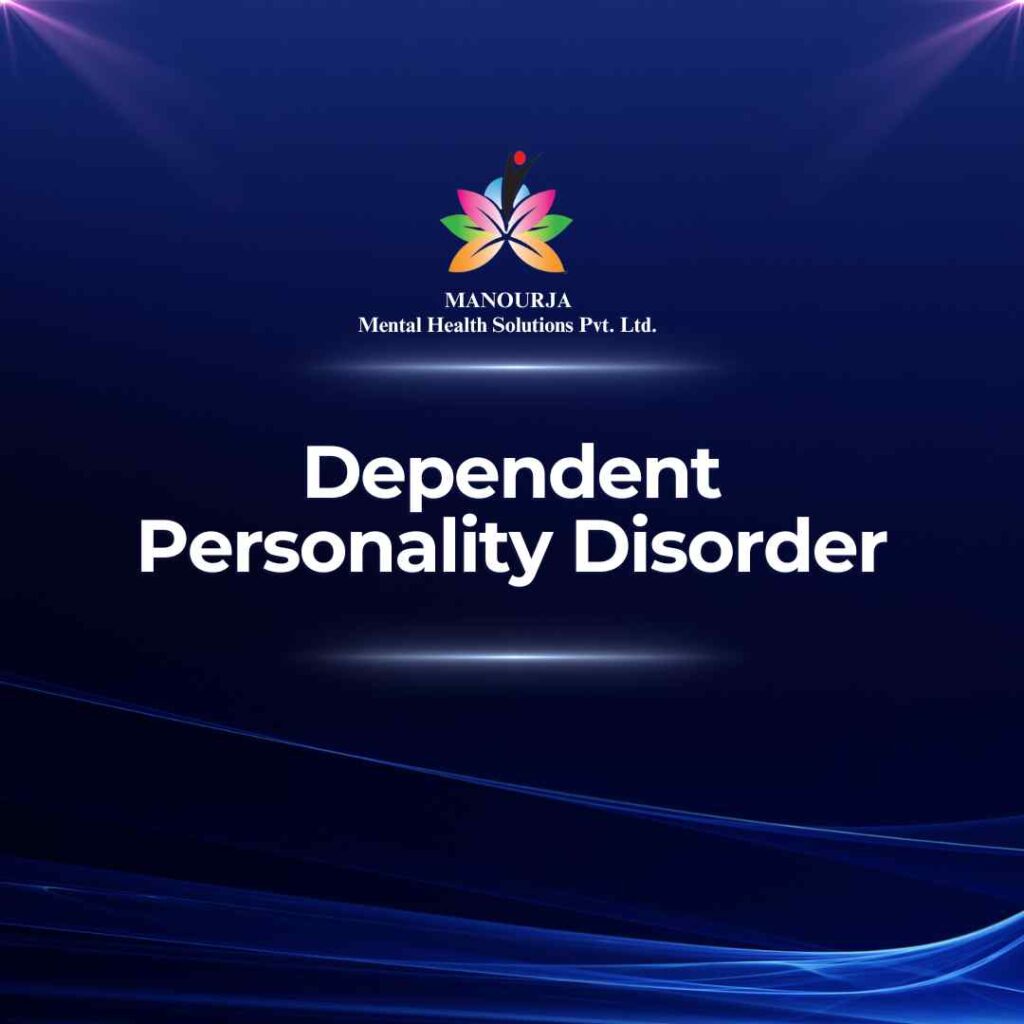Dependent Personality Disorder

Dependent Personality Disorder (DPD) is a mental health condition characterized by a pervasive and excessive psychological dependence on other people. This disorder is part of the Cluster C group in the Diagnostic and Statistical Manual of Mental Disorders (DSM-5), which includes disorders often described as anxious or fearful.
Symptoms of Dependent Personality Disorder
- Difficulty Making Everyday Decisions: Individuals with DPD often require an excessive amount of advice and reassurance from others to make even small decisions, such as what clothes to wear or what food to order at a restaurant.
- Need for Others to Assume Responsibility: They frequently need others to assume responsibility for most major areas of their lives. This dependency can extend to minor and major decisions alike.
- Fear of Abandonment: People with DPD often fear abandonment and will do what they perceive as necessary to secure a nurturing relationship, often at the expense of personal integrity or comfort.
- Difficulty Expressing Disagreement: Due to a fear of loss of support or approval, individuals with DPD often have difficulty expressing disagreement with others, especially those on whom they are dependent.
- Difficulty Initiating Projects or Doing Things on Their Own: They lack self-confidence in their ability to start or complete tasks without help from others, leading to a passive stance toward life.
- Going to Great Lengths to Obtain Nurturance and Support from Others: This may include volunteering for unpleasant tasks or tolerating abusive treatment.
- Feeling Uncomfortable or Helpless When Alone: People with DPD often feel helpless and uncomfortable when they are alone because of exaggerated fears of being unable to care for themselves.
- Urgently Seeking Another Relationship as a Source of Care and Support When a Close Relationship Ends: A characteristic feature of DPD is the urgent need to find a new relationship to provide the care and support they need, often without a sense of the quality or health of the new relationship.
- Unrealistically Preoccupied with Fears of Being Left to Take Care of Themselves: They have an unrealistic preoccupation with fears of being left to fend for themselves.
Forms of Dependent Personality Disorder
The intensity and specific expression of DPD can vary from person to person. Some individuals may function reasonably well in the world as long as they are in a protective environment or have relationships where their dependency is tolerated or encouraged. In contrast, others might be severely impaired, unable to make any decisions or initiate activities on their own.
Treatment of Dependent Personality Disorder
Effective treatment for DPD involves psychotherapy as the primary approach, with the goal of helping individuals become more active and independent, and to learn to identify and express their own needs and desires.
Psychotherapy:
- Cognitive-Behavioral Therapy (CBT): Helps patients identify and challenge the dysfunctional beliefs that contribute to their dependent behavior, and develop healthier, more autonomous behaviors.
- Psychodynamic Therapy: May explore the underlying unconscious conflicts driving the dependent behavior, often focusing on early parent-child relationships.
- Group Therapy: Can be useful in providing a supportive environment to experiment with independence and receive feedback from peers.
Medication: While there are no medications that specifically treat DPD, antidepressants or anti-anxiety medications might be prescribed if the individual also suffers from depression or anxiety.
Conclusion
Dependent Personality Disorder can significantly impact an individual’s ability to function independently in everyday life. However, with appropriate psychotherapeutic intervention, individuals can learn strategies to become more self-reliant, improving their interpersonal relationships and overall functioning in life.
At MANOURJA, we believe in the transformative power of counseling. Our experienced therapists offer a safe and supportive space where you can explore your thoughts, emotions, and challenges. Through personalized counselling sessions, we’ll work together to develop coping strategies, build resilience, and achieve lasting positive change. Discover the path to a healthier, happier you with MANOURJA counselling services.
MANOURJA Rehabilitation Services
At MANOURJA, we’re dedicated to helping you in rebuild your life, after difficult times. Our rehabilitation services focus on understanding what you need to move forward, whether you’re recovering from addiction, trauma, or any psychological – social challenges. We create personalized plans, that are all about helping you, regain your strength and find hope again. With a caring team by your side, you’ll have the support to make real progress and take steps toward a brighter, healthier future.
